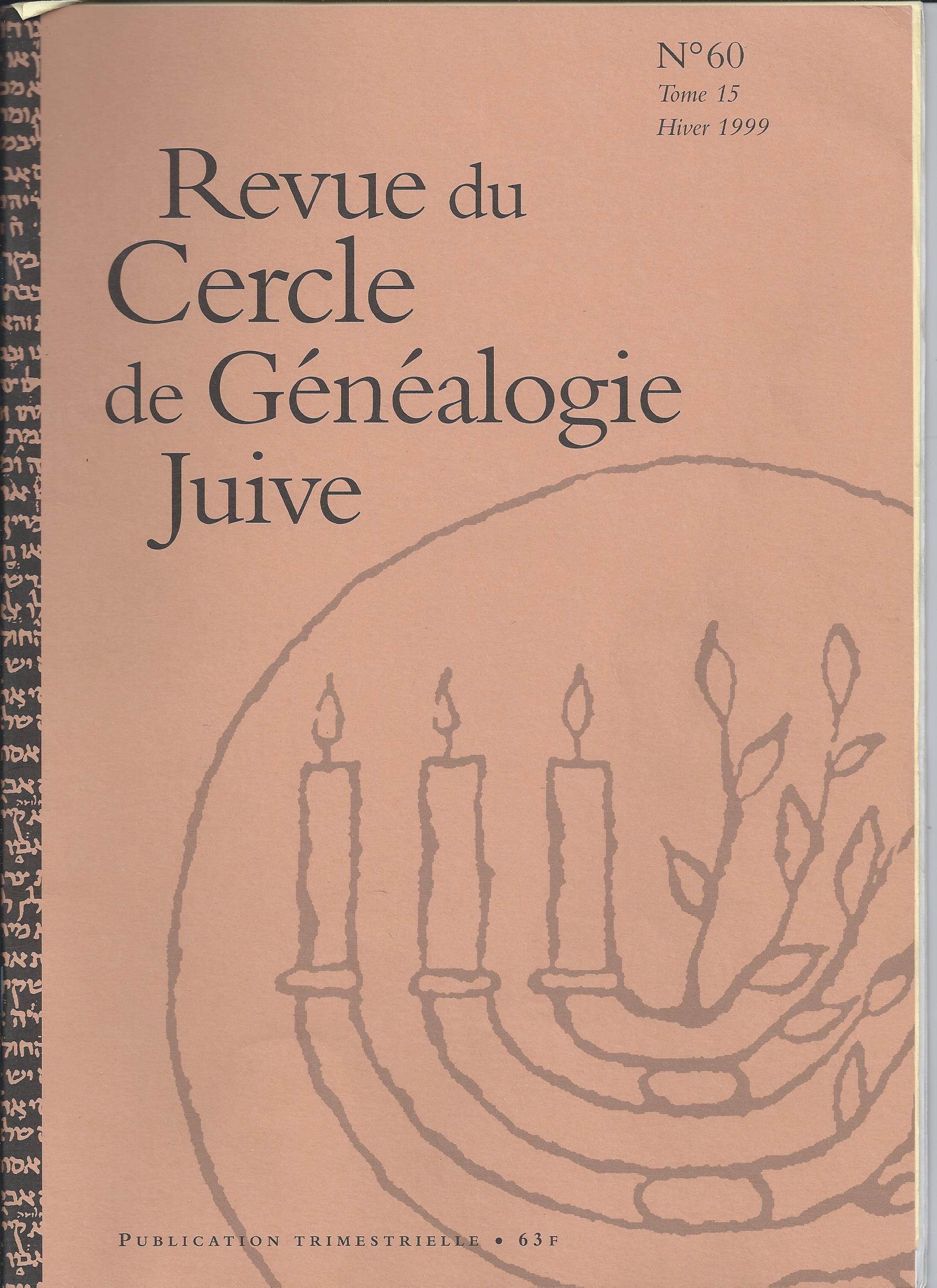DOCUMENTS The Jews and the Plague in Metz (France) in 1636.
Pascal Faustini
Metz, in 1636 is doubly plagued : the stronghold is besieged by the 30-Year War troops and the plague kills the population. Pascal Faustini has discovered an unknown document in the Metz Town Archives, registring 4430 deaths between January 17 and December 31, 1636, as well as 1350 house closed because of the pandemic. The author has extracted the 75 Jewish deaths and 19 Jewish houses and publishes the detailed entries in their original spelling. Comments drawn from the Metz Memorbuch and from reliable historians complement the list. Family records in Algeria
Fernand Deray
Jewish mariages in Constantine were recorded for the first time the year 1836. Fernand Deray and his colleagues present the detailed informations, (names and surnames, age, occupation for the married people but also for their parents and wittnesses). The CGJ will keep on providing the informations.
MISCELLANEOUS Jewish Paleography
Eliane Roos-Schuhl Compares two different documents : a manuscript from Fès dated of the XVIIIth century and a recent ketoubah issued in Oujda in 1905. She finds some similarity in designs and writings. New godmothers in Alsatian Mohelbucher
Peter Stein
Shows that godmothers appear more and more often as full actors in the circoncisions of the jewish babies. Illegitimate births in Galicia (1800-1918)
Stéphane Toublanc
In 1772, as a result of the first partition of Poland, Galicia became a part of the Austrian Empire and remained an Austrian crown land until 1918. In order to reduce the vast Jewish population, considered socially and culturally underdeveloped, a numerus clausus was instituted in 1789. It subjected marriages to prior permission, demonstration of a certain wealth and high taxation. A majority of Jewish births thereupon became illegitimate, the child thus bearing the mother's family name. This fact was known by the Jews but mostly remained shamefully hidden. Nevertheless civil records allow to trace the ancestry of the individual, and the article gives operational details on how to proceed. Jewish Genealogy and Internet
Basile Ginger Devotes this paper to the French speaking people not yet familiarized with genealogy on Internet ; he recommends different important sites, JewishGen being the first and also, step by step, guides the beginner through the meanders of the different sites and the specifications of their vocabulary. NEWS Announcement of the Meetings in Besancon and Salt Lake City FROM OUR LIBRARY PUBLISHING
- A new edition of the Index to the 1784 census by Dan Leeson
- Family records of Nîmes from 1793 to the end of the XIXth century by Dr Lucien Simon
RESEARCH: Questions and Answers FAMILIES
| 
